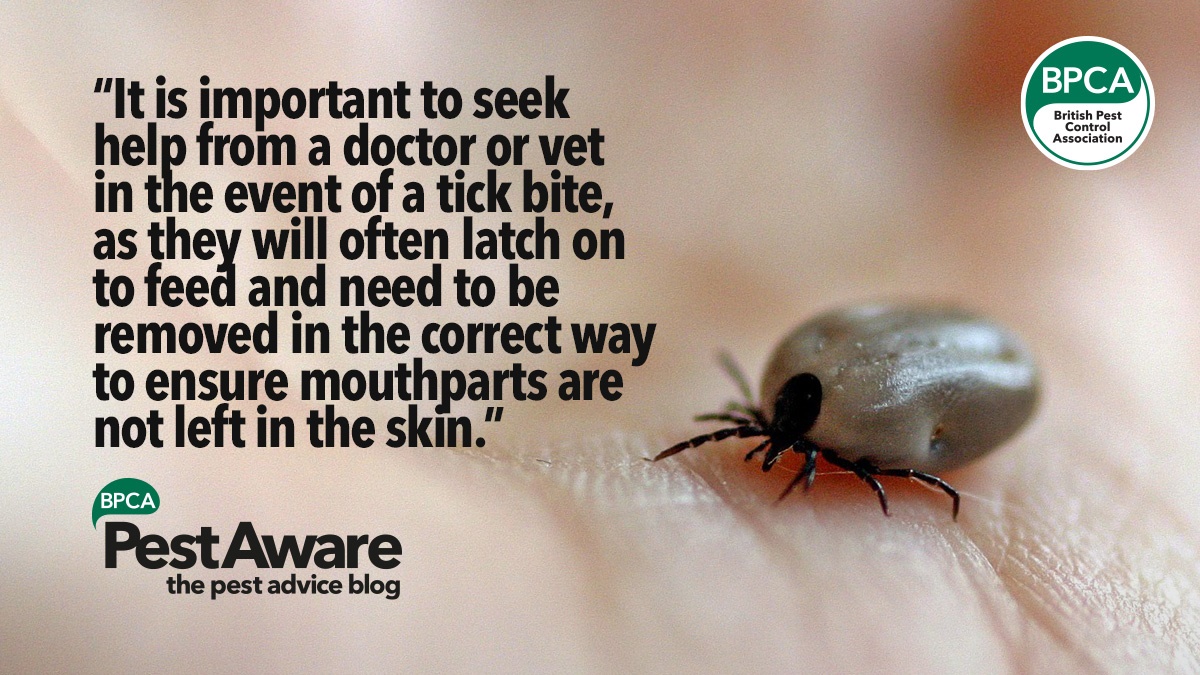PESTAWARE
An upsurge in ticks could follow a long hot summer, according to experts at national trade body, British Pest Control Association (BPCA).

Ticks, which are implicated in the spread of Lyme disease, can be inadvertently picked up in long grass in infested areas.
Pest professionals can help in the rare instance there’s an infestation of ticks in a home, but people or pets who have been bitten by a tick should consult a doctor or vet to get it removed.
John Horsley, Technical Officer at BPCA said: “While infestations are uncommon, ticks – invertebrates that rely on vertebrate blood as a food source – can be brought into your home by people and pets.
“They can be picked up by people who have walked through long grass in an infested area, as well as by pets including cats, dogs and other domestic animals.
“It is important to seek help from a doctor or vet in the event of a tick bite, as they will often latch on to feed and need to be removed in the correct way to ensure mouthparts are not left in the skin.”
Preventing ticks coming into a home is difficult, but thorough housekeeping, regular vacuum cleaning and giving pets a thorough check over after walks are vital when dealing with an infestation. The ticks will feel like a small skin tag on the skin at first, but will grow in size as they feed.
You should also maintain your garden by keeping it clear of debris and keeping the grass cut short.
More advice on ticks is available at: bpca.org.uk/ticks
If ticks are becoming a problem in the home, pest management professionals, such as members of BPCA can help tackle the issue.
John added: “BPCA members are qualified professionals with access to a range of products that are not available to the general public.
“They can help deal with a tick infestation, but tick bites should be dealt with by a doctor or a vet.
“Ticks are implicated in the spread of Lyme disease, so a bite should be checked by a doctor, especially if a rash appears at the site of the bite.”
BPCA members are trained, qualified and regularly assessed to the British Standard in Pest Management BS EN 16636.
To find a professional pest controller visit bpca.org.uk/find
You can learn more about Lyme Disease and how to support people fighting the disease on the Lyme Disease UK website.
WANT EXPERT VIEWS?
BPCA is happy to contribute to articles about pests, pest control and pest-related public health issues.
Email: jane@shepherd-pr.com
Phone: 01538 308685.

Source: Online